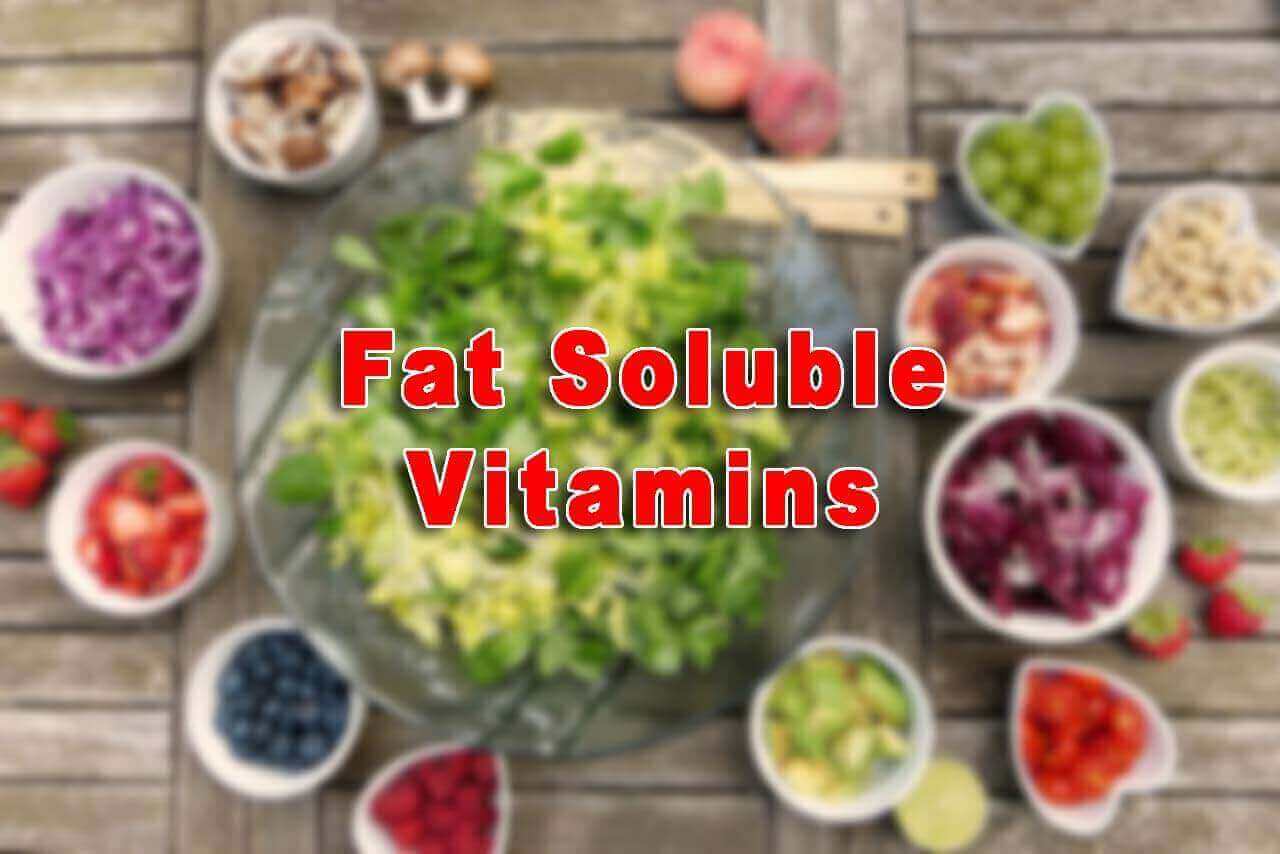In the previous article, I have described about water-soluble vitamins. If you haven’t read the article please read here.
Table of Contents
What is fat soluble vitamins?
Vitamins are broadly categorized into two categories on the basis of their solvent. One is water-soluble vitamins and these are vitamin B complex and vitamin C. The second category is fat-soluble vitamins and these are Vitamin A, D, E, and K.
Fat-soluble vitamins are dissolved in fat or oil. These vitamins usually absorbed with fat and stored in the body in the liver, fatty tissues also known as adipose tissues and skeletal muscles. These vitamins aren’t lost during cooking.
Let’s have a quick details on all these vitamins.
Vitamin A
It is also known as retinoids. Vitamin A found in plants as different carotenoid antioxidants which are collectively known as Provitamin A.
Functions:
It is also known as anti-ophthalmic because it is essential for the health of our eye and the formation of tear fluid.
It is essential for the growth and vitality of our body.
Vitamin A plays an important role in the immune system and prevents our body from many infections.
It is beneficial in nourishing our skin and hair.
It helps to prevent sterility and premature aging as well as it increases life expectancy and extends youthfulness.
Deficiency:
Its deficiency may lead to ophthalmic problems like inflammation of eyes, poor vision, night blindness, dryness of eyes, etc.
Its deficiency also causes hair loss, skin problems, frequent infections, lack of appetite and vigor, defective teeth, and gum especially in children’s, etc.
Sources:
Main animal sources are liver, fish, liver oil, etc. and vegetable sources are whole milk, curd, pure ghee, butter, cheese, green leafy and yellow root vegetables such as spinach, carrots, beets, lettuce, turnip, tomato, cabbage, and ripe fruits such as mango, papaya, apricots, prunes, almonds, peaches, and other dry fruits.
Daily recommended allowance:
For children 1000 to 2000 IU(International Units) and 3000 to 4000 IU(International Units) per day for adults.
Vitamin D
It is also known as calciferol.
Function:
It is essential for proper assimilation of calcium, phosphorus and other minerals from the digestive tract and these minerals are very important for growth and maintenance of bone and teeth.
It is also important for the healthy functioning of the thyroid gland and the immune system.
Deficiency:
Its deficiency leads to rickets in children and osteomalacia in adults characterized by soft bones, increased tendency to bone fracture, weak muscles, etc.
Its deficiency may weaken our immune system causing more susceptibility to infections.
Its deficiency also causes tooth decay, depression, fatigue, hair loss, etc.
Source:
It is naturally produced by our skin when it is exposed to sunlight. Other sources are fish liver oil, mushrooms, salmon, egg yolk, meat fat, milk, butter, sprouted seeds, etc..
Daily recommended allowance:
400-600 IU (International Unit) per day for children and adults.
Vitamin E
It is also known as tocopherol or tocotrienols.
Function:
It plays an important role in reproductive function and physical vigor.
It acts as an antioxidant and prevents unsaturated fatty acid, sex hormones, and fat-soluble vitamins from being destroyed in our body by oxidative stress.
It is very important for the prevention of heart disease, asthma, arthritis, and many other conditions.
Deficiency:
Its deficiency may cause coronary system and heart disease, sterility in men, and repeated abortion in women, muscle weakness, poor immune system function, and other neurological disorders.
Source:
The main sources are wheat or cereal germ, whole grain products, green leafy vegetables, milk, nuts like almond, hazelnut, seeds like sunflower seeds and oil, fatty fish and fish liver oil, etc.
Daily recommended allowance:
for children 9-17 IU (International unit) and for adults 23-25 IU (International Unit) per day.
Vitamin K
Function:
It plays an important role in the clotting of blood, preventing bleeding and beneficial for normal liver function. It is also helpful for preventing calcification of blood vessels and the risk of heart disease.
Deficiency:
Its deficiency can cause unstoppable bleeding because without vitamin K blood can’t clot.
Source:
The main sources are parsley, kale, spinach, lettuce, egg yolk, cow’s milk, yogurt, alfalfa, cauliflower, cabbage, tomato, and green leafy vegetables.
Daily recommended allowance:
30-60 micrograms per day in children and 100-120 micrograms per day in adults.
Also read:

